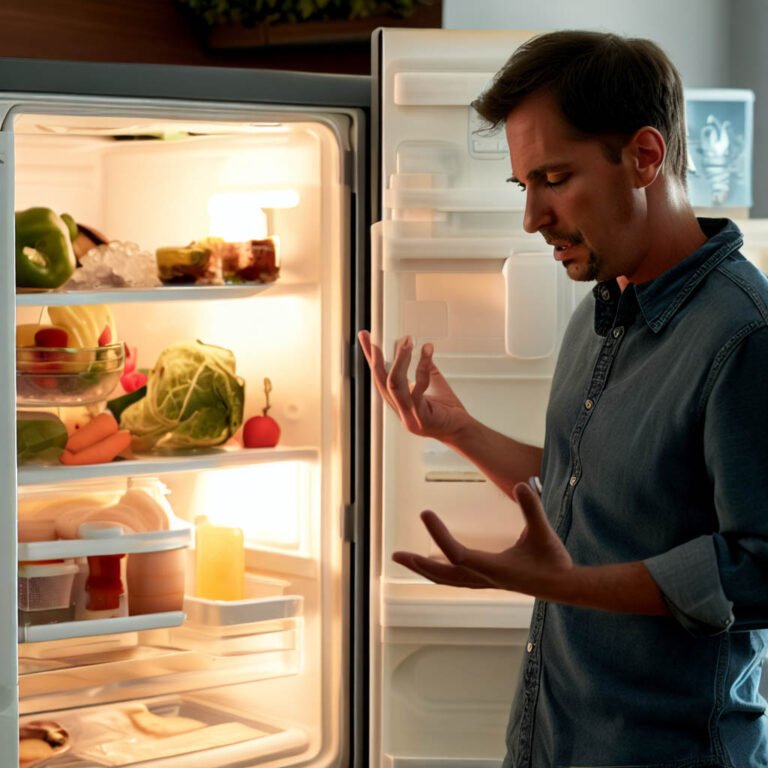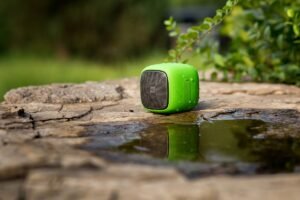Are you experiencing issues with your refrigerator not cooling as it should? A malfunctioning refrigerator can disrupt your daily routine and potentially lead to food spoilage. However, before you panic, let’s delve into common reasons for cooling problems and how to address them effectively.

1. Dirty Condenser Coils:
Start by checking the condenser coils located either at the back or underneath the refrigerator. Accumulated dust and debris can hinder heat dissipation, causing the refrigerator to struggle with cooling. Refer to your refrigerator’s manual for guidance on safely cleaning the coils.
2. Blocked Air Vents:
Ensure that the air vents inside the refrigerator and freezer compartments are not obstructed by food items or other objects. Blocked vents can disrupt the airflow, leading to uneven cooling or warm spots. Clear any obstructions to allow for proper air circulation.
3. Faulty Evaporator Fan Motor:
The evaporator fan motor circulates cold air throughout the refrigerator. If this fan motor malfunctions, it can result in inadequate cooling. Listen for unusual noises coming from the refrigerator’s interior, which could indicate a faulty fan motor. If necessary, consult a technician for repairs or replacement.
4. Malfunctioning Thermostat:
A malfunctioning thermostat can prevent the refrigerator from maintaining the desired temperature. Use a thermometer to check the temperature inside the refrigerator and freezer compartments. If the temperature is inconsistent or outside the recommended range, the thermostat may need calibration or replacement.
5. Refrigerant Leak:
A refrigerant leak can compromise the cooling system’s efficiency, leading to inadequate cooling. Signs of a refrigerant leak include frost buildup on the evaporator coils or a hissing sound coming from the refrigerator. If you suspect a refrigerant leak, seek professional assistance for inspection and repairs.
6. Compressor Issues:
The compressor is crucial for maintaining proper cooling in the refrigerator. If the compressor is faulty or not functioning correctly, it can lead to cooling problems. Listen for unusual sounds such as clicking or buzzing emanating from the compressor. Consult a technician for diagnosis and repairs if needed.
7. Insufficient Ventilation:
Ensure that your refrigerator has adequate ventilation space around it. If the refrigerator is placed too close to the wall or surrounded by clutter, it can impede airflow and affect cooling efficiency. Maintain a few inches of clearance around the refrigerator for optimal ventilation.
Additional Resources for Troubleshooting:
For specific guidance tailored to your refrigerator brand, refer to the following resources:
- GE Café: Visit the GE Appliances support page for troubleshooting tips: GE Café Refrigerator Support
- LG: Watch this helpful video from LG for troubleshooting refrigerator cooling issues: LG Refrigerator Troubleshooting Video
- Whirlpool: Refer to the Whirlpool blog for insights on addressing refrigerator cooling problems: Whirlpool Refrigerator Troubleshooting
- Frigidaire: Explore the Frigidaire Owner Center FAQs for troubleshooting guidance: Frigidaire Refrigerator FAQs
A refrigerator not cooling properly can be a nuisance, but with thorough troubleshooting and timely maintenance, you can often resolve the issue without the need for professional assistance. By addressing common causes such as dirty condenser coils, blocked air vents, faulty components, and inadequate ventilation, you can restore your refrigerator to optimal cooling performance and ensure the freshness of your food items.
GE Cafe Refrigerator not cooling. Here is a quick solution: https://www.youtube.com/watch?v=9uUlaUqQBJo
Watch This Video for Solutions to Samsung Fridge Not Cooling!
Watch This Video: Understanding Why Your Refrigerator Is Too Warm (How it Works) | Repair & Replace







